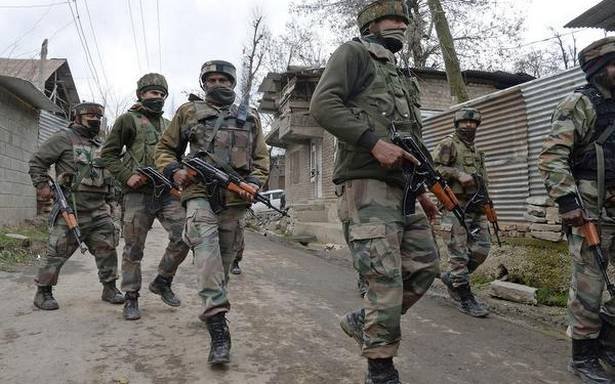HT Digital
Wednesday, October 9: The Armed Forces (Special Powers) Act (AFSPA) has been extended for another six months in four districts of Assam, a move triggered by rising tensions in neighboring Bangladesh. The decision to retain AFSPA in the districts of Tinsukia, Dibrugarh, Charaideo, and Sivasagar was announced in an official notification on Tuesday. This extension comes as concerns grow about potential fallout from unrest in Bangladesh affecting the law and order situation in the region.
AFSPA grants the armed forces the authority to declare an area “disturbed,” giving them special powers to maintain public order. The Act allows security forces to carry out operations, arrest without a warrant, and use force if necessary in such areas. It is generally imposed in regions where the government believes unrest or insurgency activities pose a significant threat to peace and stability. The decision to extend AFSPA reflects both external and internal concerns for Assam’s security.
The notification by the Centre highlighted the recent disturbances in Bangladesh and the possible repercussions on Assam. Reports suggest that these external factors have heightened the risks for the state’s law and order situation, leading the government to retain AFSPA in the four districts. Assam’s government also backed the extension, with officials citing the potential security risks posed by the unrest across the border.
Despite the extension of AFSPA, it has been acknowledged that the overall security situation in Assam has seen notable improvement in the last three years. Various intelligence and police reports indicate that the situation in the state has stabilized considerably, thanks to sustained efforts by security forces and ongoing counter-insurgency measures. However, the unrest in Bangladesh and the proximity of these four districts to international borders have necessitated retaining the special provisions.
AFSPA was first imposed in Assam in 1990, during a period of intense insurgency and militant activity. Over the years, its imposition has been a subject of controversy and debate, with human rights groups often criticizing the Act for giving too much power to security forces. However, successive governments have defended its use as necessary for maintaining order in volatile areas.
While AFSPA remains in force in these four districts, the notification made it clear that the Act has been gradually withdrawn from other parts of Assam in recent years. Last year, AFSPA was lifted from Jorhat, Golaghat, Karbi Anglong, and Dima Hasao. These areas were deemed to have improved security situations, allowing for the withdrawal of the special powers. The process of gradually phasing out AFSPA began earlier, as parts of the state showed a marked decrease in insurgency-related incidents.
The recent decision to retain AFSPA comes at a time when Assam has been striving to shed its image as a disturbed region. Efforts by the government and security forces to promote peace and development have resulted in a much-improved atmosphere in the state. However, the proximity of the state to international borders and the current geopolitical climate in neighboring Bangladesh have once again underscored the need for vigilance.
The Ministry of Home Affairs, which oversees security matters at the national level, reportedly conducted a thorough review of the situation before deciding to extend AFSPA. The ministry, in consultation with the state government, concluded that the disturbances in Bangladesh pose a real risk of spillover into Assam, particularly in the four affected districts.
While AFSPA is currently restricted to just these four districts, authorities remain on high alert, monitoring the situation closely. The state government, in coordination with the Ministry of Home Affairs, is expected to reassess the security situation at the end of the six-month extension to determine if further action is necessary.
As Assam continues to recover from decades of insurgency, the decision to retain AFSPA highlights the delicate balance between security and civil liberties. The next six months will be crucial in determining whether the situation stabilizes further, potentially allowing for the complete removal of AFSPA from the state in the near future.







